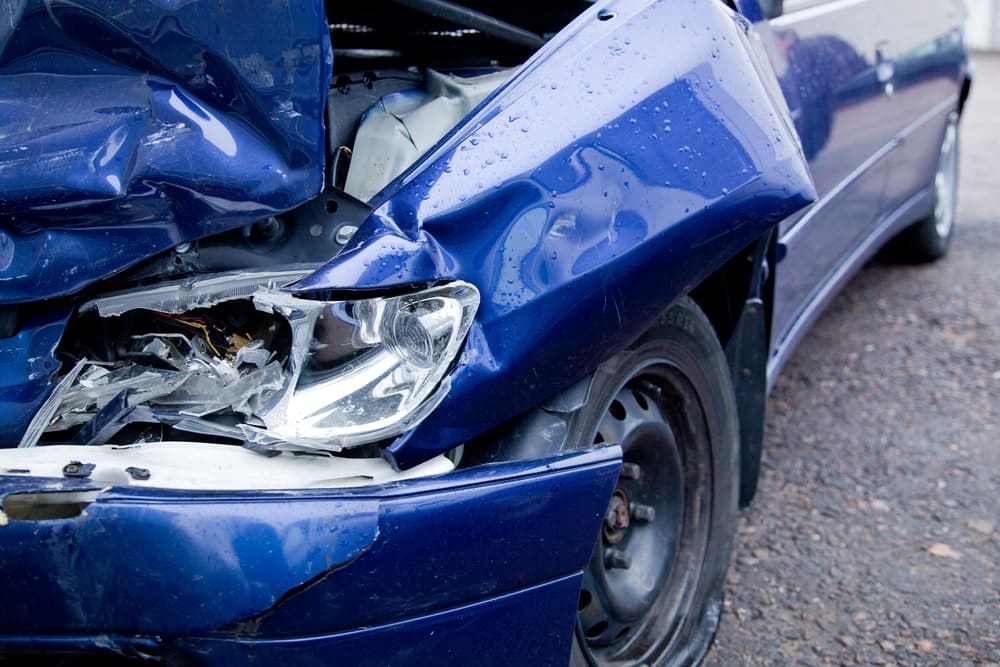Even the most careful driver can find themselves in a situation where their car is damaged beyond repair. Anything from a prang on the road to damage from a storm can lead to your vehicle being written off. If this happens, it’s important to know what to do and what steps to take with your insurer.
You can learn more about write-offs in car insurance right here with Savvy. Our helpful guide explains what it means when your car is deemed a write-off, the insurance claim process and what you can do with a written-off vehicle.
What is a write-off in car insurance?
If you’re involved in an incident that causes major damage to your vehicle, your car insurance company might deem it a ‘write-off’ or ‘total loss’. This means it’s been found to be either beyond repair or too expensive to fix.
There are two types of write-off:
- Statutory – a vehicle that has sustained severe damage, making it unsafe to repair and drive. These vehicles are considered a total loss and cannot be legally driven on public roads. They’re typically sold for salvage or dismantled for parts and aren’t eligible for re-registration.
- Repairable – the car could be repaired but the cost of doing so would be more than its agreed value in your insurance policy or the market value before the incident.
Any number of incidents can lead to a car being written off, from a high-speed crash to weather-related damage such as hail. Even if a car looks undamaged, it could have serious unseen issues. For example, the chassis may be broken or water damage affecting the car’s electronics may lead to it being deemed a write-off.
Will my car insurance cover my vehicle if it’s written off?
If your car is written off, whether your car insurance covers it will depend on the type of policy you have and its terms and conditions. All the relevant details will be outlined in your policy’s Product Disclosure Statement, but comprehensive car insurance can provide protection against accidental damage to your vehicle, including situations where the vehicle is deemed beyond repair. This means that if your car is written off in Australia, your insurer may offer a settlement based on the car’s agreed or market value, depending on the qualification criteria of your policy.
You may also be covered if you have third party fire and theft (TPFT) car insurance and your vehicle is written off due to a fire or theft, but this doesn’t cover you for incidents such as road traffic collisions. If you have third party property damage (TPPD) insurance, you aren’t covered for any damage to your own car, including if it’s written off, but it can cover you if you write off someone else’s car.
What happens after my car is written off by my insurer?
To determine whether a car is a write-off and what type of write-off it is, your insurance company will send an assessor to evaluate the vehicle and assess the damage against set criteria. The insurance company will then review the assessor’s report and calculate from that whether the car can or should be repaired. Once classified as a write-off, it’ll be listed on the Written-Off Vehicle Register (WOVR), an Australia-wide government initiative for recording written-off vehicles.
If you accept your insurer’s decision, you'll receive an insurance payout for your written-off vehicle (provided the write-off satisfies their terms and conditions). Depending on your policy, this payout will be either for the car’s market value – based on the car’s listed value and sales of the same model, condition of the car before the accident and distance on the odometer – or agreed value, which is the amount agreed between you and insurer when the policy was taken out.
However, the amount you receive may be impacted by other deductions, such as:
- Your excess
- Your remaining car insurance premiums for the year
- Unused registration and compulsory third party (CTP) insurance
If your car is financed, your insurer must pay the outstanding value of the vehicle; however, this might be less than the amount owed to your lender, so you’ll be responsible for paying the difference if this is the case.
What can I do if I disagree with my insurer’s decision to write off my car?
If your insurer deems your car a repairable write-off but you disagree, you can dispute the decision. However, insurers have just seven days to notify the WOVR after declaring a car a write-off.
If you believe your vehicle can be repaired economically, you should start gathering evidence to support your claim as soon as possible, such as quotes for repair and salvage value and evidence of market value.
If you can’t reach a resolution, you can take your case to the Australian Financial Complaints Authority (AFCA).


